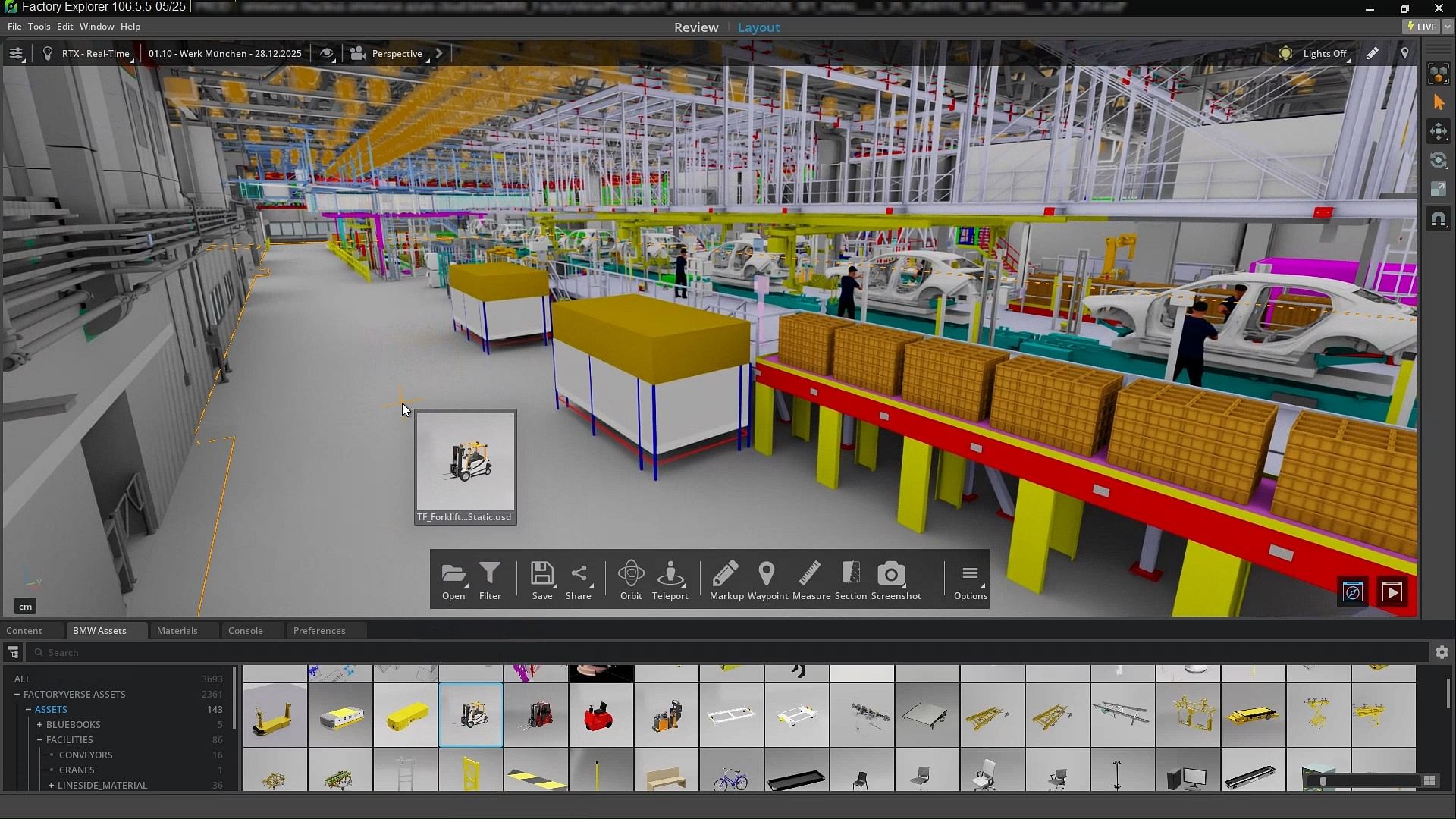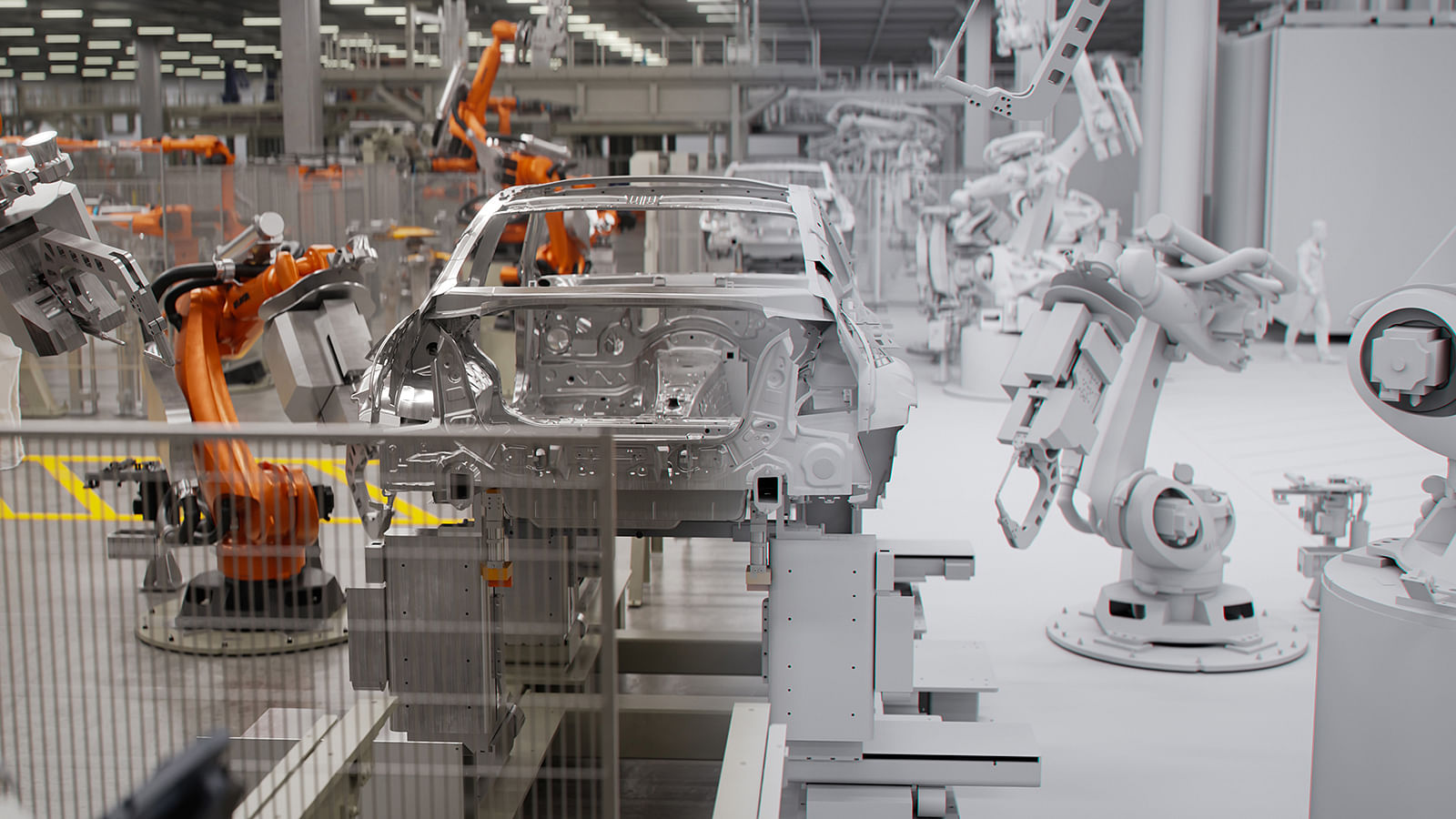BMW Group to industrialise Virtual Factory, slash production planning costs
What once required several weeks of real-world modifications and testing can now be precisely simulated in the BMW Group’s Virtual Factory. To create optimal conditions for upcoming launches at the plants, the BMW Group will integrate more than 40 new or updated vehicles into its global production between now and 2027.
The BMW Group is industrialising its Virtual Factory, with production planners continuously scaling applications in the digital twins of over 30 production sites to accelerate production planning worldwide. What once required several weeks of real-world modifications and testing can now be precisely simulated in the BMW Group’s Virtual Factory.
To create optimal conditions for upcoming launches at the plants, the BMW Group will integrate more than 40 new or updated vehicles into its global production between now and 2027. This will first be done virtually to ensure immediate stability at the plants. Going forward, the BMW Group’s Virtual Factory is projected to reduce production planning costs by up to 30 percent.
Virtual planning is a core element of the BMW Group iFACTORY and involves a wide range of tools. The intelligent linking of building data, equipment data, logistics data, vehicle data and even 3D simulation of manual work processes creates digital twins of all BMW Group plants worldwide. In an industrial 3D metaverse application based on NVIDIA Omniverse, simulations can be performed in real time, enabling virtual optimisation of layouts, robotics and logistics systems. The BMW Group’s Virtual Factory is continuously expanding to incorporate generative and agentic AI functionalities and assistants.

Digital, automated, fast: Collision checks for new vehicle models
For every launch, it is essential to verify that the new product fits on the production line and does not collide with its surroundings at any point. In the BMW Group’s Virtual Factory, this collision check is digital, automated and fast, using construction data combined with 3D scans. The movement and rotation of a vehicle through the production lines are precisely simulated, allowing the system to automatically check for possible collisions. What now takes just three days to simulate virtually previously required almost four weeks of real testing.
In the past, a real vehicle body had to be manually guided through the production lines – often over several weekends – to identify potential collisions. In the paint shop, this process sometimes required completely emptying and cleaning the dip coating tanks where vehicle bodies are submerged for priming. The costs and time investment for this were enormous.

Growing number of scalable applications
The BMW Group's Virtual Factory is rapidly evolving, enabling an increasing number of applications to be scaled. In addition to virtual, automated collision checks, this includes human simulation to optimise manual production steps and automated identification of maps of the surroundings from existing 3D scans for smart transport systems.
The BMW Group is to present Virtual Factory at NVIDIA GTC in Paris today (June 12) from 11:00 am to 11:45 am CEST.
RELATED ARTICLES
Autoliv Plans JV for Advanced Safety Electronics With China’s HSAE
The new joint venture, which is to be located strategically near Shanghai and close to several existing Autoliv sites in...
JLR to Restart Production Over a Month After September Hacking
Manufacturing operations at the Tata Group-owned British luxury car and SUV manufacturer were shut down following a cybe...
BYD UK Sales Jump 880% in September to 11,271 units
Sales record sets the UK apart as the largest international market for BYD outside of China for the first time. The Seal...






 12 Jun 2025
12 Jun 2025
 8068 Views
8068 Views














 Ajit Dalvi
Ajit Dalvi




